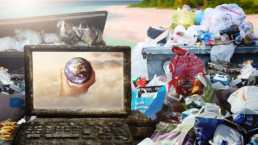Giving Gifts with Purpose

Happy Holidays!
December is a special month, and we have so many holidays to celebrate in December. We have Hannukah, Christmas, and Kwanzaa. All these festivals believe in peace, joy, and unity all over the world. With all the craziness going on in the world currently, these holidays are awaited so eagerly.
With holidays comes the gift-giving. We need to be mindful of giving gifts to our loved ones. Sometimes, the gifts we give are returned or not liked. A unique and different way of gifting is financial gift-giving, which includes contributing to college costs, giving charities, cash, stock and impact investing.
Gift as Stock
Many parents and grandparents like the idea of ushering their children or grandchildren down the path of financial literacy and financial responsibility. Giving kids a financial gift starts the conversation of how much to spend on something for myself, how much to save toward a major goal, and how much to share with others in need. You can give by purchasing stocks, bonds, mutual funds, or ETFs as a holiday gift to children. It helps if the stocks are in companies, such as Apple, Disney, or Facebook, that they know, understand, and get excited about. Stockpile is one such company which allows you to buy gift cards that recipients can redeem for fractional shares of stock in over 1,000 companies and ETFs.
College Savings
If you have younger children on your list this year, but you still want to give the gift of education, look into opening a 529 plan or contributing to an existing account. These are tax-advantaged accounts specifically designed to help families save for education costs.
Student loan debt
While saving for college can make a great gift, paying off student loan debt is also a worthwhile approach to holiday giving. There is company called Gift of College which has its gift cards available to make the payments for the student loans.
Job skills
Help your friends and family sharpen their skills or expand their knowledge base this holiday season. You never know; it could lead to a promotion or a better paying job in the new year. Online learning websites like Udemy, Coursera, and LinkedIn Learning provide gift certificates to offer someone to take courses.
Charity as a gift
The season of giving is upon us, and this year especially, the need is great. Consider giving a donation or making a charity as a gift this year — it’s a great way to give back to others. It also demonstrates how well we know our loved ones by supporting the causes they care about. In addition to charitable giving being a rewarding experience, it comes with tax benefits.
Impact Investing
If you’re currently assessing your budget and have extra dollars you’d like to spend this year investing in your family’s future…Or if you’re looking for a fresh, new idea for how to spend your EOY budget allocation for investments…
Right now *might* just be the perfect opportunity for you to invest in CoPeace before the end of the year. Investing now is an opportunity to use your dollars for good — by supporting causes you care about and earning financial returns.
I believe, there are so many ways to make gift-giving in a real sense meaningful and purposeful.
Aarti Karnik is the Director of Web Development with CoPeace. As a forward-thinking holding company, CoPeace is building a portfolio of carefully selected for-profit companies with measurable social and environmental impact. To learn more about impact investing, check out CoPeace’s Intro to Impact Investing.
What National Water Quality Month Means To Us

“Aappovaa Annam Shariram Annadam”
This Sanskrit verse implies that water (Aappovaa) is the basis for food, and the human body (shariram) is composed (survived) of food (annadam). Hence, it is utmost essential to save water.
August is National Water Quality Month. This reminds us to think of how valuable the water resources are like oceans, lakes, and rivers to preserve, which provide clean and safe water to us. Safe, clean, potable water should be a right for everyone, but it’s becoming a privilege nowadays. Many countries around the world are grappling with the issue of providing clean water.
In under-developed countries or developing countries, getting drinkable water to everyone is becoming more of a challenge to poor and lower-income families.
As a developing country, India is on the brink of a water crisis. Poor management of water resources and water pollution are the main reasons for this crisis. Many rivers flow throughout the country. So, they are the main sources for drinking water and household chores. But they are polluted regularly. The situation gets worse when people wash their clothes and bathe in river water.
On my last trip to India, I saw how lower-income groups of people have to struggle to get clean drinking water. People living in rural areas have to walk miles every day to get a few gallons of potable water for their families. Additionally, the majority of the population in India does not get access to clean tap water. During the monsoon months, most people who have access to clean tap water, will still boil the water before drinking.
Most of the middle-income and upper-income families use their own reverse-osmosis filters to treat tap water when it is available, but in most cities, it is supplied for just a few hours each day. Corporations supply drinking water in trucks to lower-income families who boil it to make it fit to drink.
This is not just India; access to clean water does not exist in many communities throughout the world. Unfortunately, having high quality, unpolluted water is continuously taken for granted, especially by developed countries. In the US, we use water for everything from drinking to recreation without thinking twice about it, but what most Americans don’t realize is, not all water is created equal, and having immediate access to clean water is a privilege, not a right.
How do we prevent harming the water quality?
It is important to only flush the three Ps (pee, poop and [toilet]paper). Flushing other items could contaminate the wastewater system, causing downstream water quality issues, or it could create major plumbing issues, including broken pipes.
Here are a few things we can do to prevent water pollution:
-
- Make sure to dispose of any paint, pesticides, cleaners, chemicals, and other items at your local hazardous waste site.
- Some landscaping pesticides and fertilizers are harmful to the water supply. When choosing your landscaping products, it is important to choose phosphorus-free products. It is also important not to overwater your lawn, since that can cause runoff of fertilizers and pesticides into the water supply.
- Clean any oil leaks or spills with either kitty litter or baking soda, then dispose of that in the trash.
- Dispose of pet waste as soon as possible.
- Keep your gutters and sidewalks clean, so debris does not get washed into the storm drain.
- Sweep paved areas around your house, rather than hosing them down.
You never know the worth of water until the well runs dry, so Conserve water, Conserve life.
Aarti Karnik is the Director of Web Development with CoPeace. As a forward-thinking holding company, CoPeace is building a portfolio of carefully selected for-profit companies with measurable social and environmental impact. To learn more about impact investing, check out CoPeace’s Intro to Impact Investing.
I Vote Every Day
Last November, after collecting an ‘I Voted’ sticker on my way out of the voting booth, rather than paste it on my shirt, I chose to stick it on my credit card. Now, whenever I pull out my credit card, I’m unmistakably reminded that I vote with where and what I purchase.
That idea and effort – of striving to align my support for businesses and products that align with my values – is one that I’m continually learning to live. Working with CoPeace, a Certified B Corporation, gives me the added motivation to better understand what it means to Vote Every Day.
Regular readers may recall the February edition of this blog in which CoPeace financial analyst Jacob Miller shared a primer about impact investing and B Corps. Check it out as a reminder for why we, at CoPeace, are so excited to be part of the B Corp community. One of the tenets held by B Corp businesses and supporters alike is to approach each day as if “Every day is Election Day.” Find businesses that serve your needs and routines by taking the B Lab’s 1 Minute Quiz. It can be a worthwhile and rewarding experience to know that you’re using your dollars to back businesses that you want to ‘win’ in humanity’s collective justice and sustainability journey.
With the surge of recent widespread public acknowledgement that Black lives matter, it’s inspiring to come across numerous other tools that are helping consumers be more intentional with their spending. Some websites, like intentionalist.com and http://www.donegood.co/, offer filters for choices like community ownership, product category, or location. Other resources offer curated lists or apps created to help diners find Black-owned restaurants in their city.
There are resources out there to help align values with business and help make your vote count every day.
The Global Positivity Project

When things are not going the right way and we feel bogged down, we can always count on Mom to be at her best. When the world is hunkered down with fear and uncertainty, she is on the frontlines to make new normal feel a little bit more normal.
All in the hopes that, years from now when kids think back of this time, they won’t think about fears or uncertainty. They will think about free, unscheduled, unhurried time spent one-on-one doing puzzles, playing board games, epic birthday parades, learning some life skills like simple cooking, gardening and vacuuming. Various virtual activities like staying fit, connecting with friends and loved ones, and participating in virtual dance, music etc. They will remember when everyone was being home-schooled, they didn’t just learn reading, writing and arithmetic. They learned what really matters in life – love, laughter, and a good internet connection.
And during this time when we are all told to stay apart, they will find somehow, we have grown a little bit closer. So that one day, when this madness is finally all over, when this new normal goes back to normal, our children will tell stories about how in spring 2020 the world did not stop. It kept revolving and moving forward fueled by the most powerful force on Earth, a mother’s love.
Mother also connects to the planet we live on. Mother Earth. Recently we marked the 50th year of Earth Day. She is also healing and showing positive signs rebounding with its beauty. People aren’t driving everywhere, flying frequently, or using tons of electricity, reducing global carbon emissions. Governments have started to realize the pandemic is offering cities the unprecedented opportunity to restructure society, sustainably and equitably, on the other side.
A very new and different world will exist after the pandemic, but a new world also means new opportunities for creating a sustainable future. We at CoPeace always strive to have the same vision to create a new sustainable impact investing economy.
Aarti Karnik is the Director of Web Development with CoPeace. As a forward-thinking holding company, CoPeace is building a portfolio of carefully selected for-profit companies with measurable social and environmental impact. To learn more about impact investing, check out CoPeace’s Intro to Impact Investing.
Mindful Packaging

It is the season of shopping and gift giving. With the holiday shopping season, comes attractive packaging, which quickly ends up as trash. Packaging of a product is meant to keep the product safe and easy to transport. Packaging is considered as an effective advertising tool. Today packaging has become part of products’ design.
The packaging of a product has become its own industry, with teams dedicated to the “unboxing” experience and the emotional connection that comes with opening a consumer package. But packaging is also waste. For instance, when we purchase a new phone there are multiple layers of plastic, cardboard, and paper before we get to the actual product. This is the art of psychology.
When looking at alternative options, the industry is exploring biodegradable, compostable, and reusable packaging options.
What we can do to make sure our packaging is creating a positive impact?
- Compostable packaging is a growing trend for conscious consumers. There are companies producing compostable packaging and even compostable satchels, too.
- By going the biodegradable and minimalist packaging route, products become cheaper, as more product can be fit in each shipment and less material is required for production.
Nowadays, consumer technology companies add up to 20% or more to the sale price of products due to the many layers of packaging materials involved in the process.
There is a common misconception that e-commerce is a more sustainable alternative, but additional waste is generated when shipping the products, through added packaging and the carbon footprint of shipping. Choosing a supplier that has headquarters throughout the world allows packaging to be delivered in a shorter period of time and reduces the transportation costs and the CO2 emissions that come with it!
It is common knowledge that single-use plastics are not sustainable for packaging, and even when recycled, there are still tons of new plastics being manufactured for packaging. What if packaging suppliers partnered with charities or nonprofits to have trees planted equal to the average number of trees used for the packaging materials generated?
 When doing your holiday shopping, be on the lookout for a Forest Stewardship Council certification. This FSC certification guarantees the package sourcing is environmentally-friendly, socially responsible and economically viable. FSC is an organization that works to promote the practice of sustainable forestry worldwide.
When doing your holiday shopping, be on the lookout for a Forest Stewardship Council certification. This FSC certification guarantees the package sourcing is environmentally-friendly, socially responsible and economically viable. FSC is an organization that works to promote the practice of sustainable forestry worldwide.
There are many possibilities. If done thoughtfully, we can have a positive impact with consumer packaging on our precious planet. So let’s consciously decide together to work towards the change.
Aarti Karnik is the Director of Web Development with CoPeace. As a forward-thinking holding company, CoPeace is building a portfolio of carefully selected for-profit companies with measurable social and environmental impact. To learn more about impact investing, check out CoPeace’s Intro to Impact Investing.
The Newest Stakeholder in College Sport: The Student-Athlete
When California Governor Newsom signed California SB-206 – The Fair Pay to Play Act – last month, it sent a signal to the nation that student-athletes, the foundation of intercollegiate athletics, are not being treated fairly as stakeholders in the robust business. Governor Newsom said, the bill will change college sports for the better, putting the interests of student-athletes on par with the interests of the institutions. While the debate often centers around whether student-athletes should receive a portion of profits from the NCAA and schools, California’s bill addresses external financial opportunities. The Fair Pay to Play Act, set to become active on Jan. 1, 2023, will allow student-athletes the right to earn compensation from their own name and likeness (e.g. sponsorships opportunities).
While there are valid debates about how and whom will be impacted through the new earning opportunities, it’s clear from numerous past lawsuits and similar legislative proposals in other states, student-athletes have been feeling unsatisfied with the balance of power in their relationship with the NCAA. The NCAA responded to the bill’s passing with a call for national discussion and legislation, believing an organization-wide solution offers better clarity than varying state regulations. One could argue this was done in an effort to continue the conversation and provide evidence against student-athletes’ claims of undercompensation in the annual multimillion-dollar industry.
NCAA President Mark Emmert has acknowledged the growing negative perception of the organization and its institutions. However, the NCAA’s response to California’s SB-206 seems unlikely to compel student-athletes to see the governing body as an ally.
At CoPeace, we understand successful organizations of the future need to treat all stakeholders equally. We know building relationships and respecting everyone in our organization will strengthen our community and positive impact.
On Why Chipotle Should Strive for B Corp Certification
Chipotle should consider pursuing B Corp certification. The Colorado-founded, Mexican-inspired, quick-service restaurant chain has been a pioneer in modern dining for the last 25 years, earning loyal patrons across all demographics, especially younger consumer segments. Rather than be content to follow industry trends, Chipotle and its founder Steve Ells have a history of blazing the trail for others to follow, essentially forging the fast-casual segment. This pioneering includes a tradition of sourcing only exceptional ingredients through responsible partners, all in an effort to serve customers “features from the realm of fine dining to the world of quick-service restaurants.” Since 2015, however, the company’s been preoccupied seeking solutions to diffuse negative attention and regain customer trust that’s eroded due to numerous reports of food-safety issues. Combine that negative press with known trends of younger consumers becoming more astute consumers, and it becomes obvious that the company has an uphill battle to earning back trust. The publicly-traded company’s current brand campaign, Food with Integrity, emphasizes Chipotle’s commitment…
“To sourcing the very best ingredients we can find and preparing them by hand. To vegetables grown in healthy soil, and pork from pigs allowed to freely root and roam outdoors or in deeply bedded barns. We’re committed because we understand the connection between how food is raised and prepared, and how it tastes. We do it for farmers animals the environment dentists crane operators ribbon dancers magicians cartographers and you. With every burrito we roll or bowl we fill, we’re working to cultivate a better world.”
This sort of message would earn most brands praise from customers and peers, but Chipotle’s recent track record adds skepticism to customer perception (though the health risks are arguably statistically insignificant from a food-safety perspective considering the high volume of sales). And for that, Chipotle’s message to customers requires a tangible accountability – a recognizable and industry-accepted certification – that they as a company cannot currently independently institute, due to their lacking customer trust. At present, the company only has a fiduciary duty to investors. To give credence to their claim of commitment to “cultivate a better world”, Chipotle should consider adding ‘B Corp Certification’ as its 52nd ingredient. For Real.
About CoPeace
CoPeace is a first-of-its-kind impact holding company. As a pending Certified B Corp itself, CoPeace is pursuing B Corp status because the founders believe in the mission, impact, and capital influence that having such a certification brings to the world of commerce. This model allows the CoPeace team to craft a portfolio of companies working towards complementary missions in any given social or environmental subsector, and ultimately to amplify its collective impact output.







